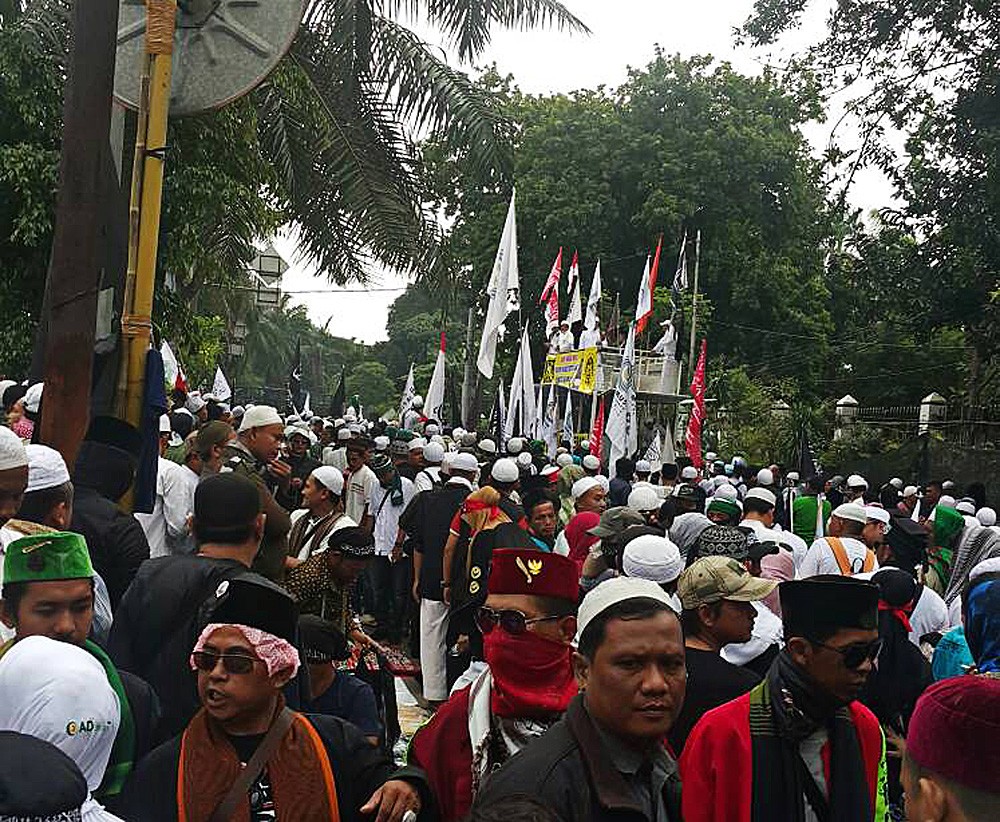Popular Reads
Top Results
Can't find what you're looking for?
View all search resultsPopular Reads
Top Results
Can't find what you're looking for?
View all search results‘Do not claim monopoly on religious truth’
At a time when anyone with an internet connection can turn into a “religious expert” overnight and start quoting Quranic verses and the Prophet’s sayings just to declare people as heretics or apostates, two senior Muslim clerics have simple advice to offer: You cannot and should never claim a monopoly on religious truth.
Change text size
Gift Premium Articles
to Anyone
At a time when anyone with an internet connection can turn into a “religious expert” overnight and start quoting Quranic verses and the Prophet’s sayings just to declare people as heretics or apostates, two senior Muslim clerics have simple advice to offer: You cannot and should never claim a monopoly on religious truth.
Nahdlatul Ulama (NU) cleric Mustofa Bisri, affectionately known as Gus Mus, and Quraish Shihab, one of the few experts on Quranic exegesis in the country, appeared together on the televised Mata Najwa talk show on Thursday evening to express their concern about the growing religious intolerance and extremism in the country.
The two scholars, who have been close friends for 50 years, said they believed the problem was rooted in the attitude of some people who claimed to have the only true interpretation of Islam.
“God never asks what is five plus five because there will be only one answer. What God asks is, what makes 10? It can be seven plus three or eight plus two and etc. Therefore, truth is diverse,” Shihab said. “Our mistake in understanding religion is to believe that there is only one truth, our version of truth.”
Shihab elaborated that imposing the truth that one believed on others would trigger social friction, a situation with which Indonesia was currently struggling.
“Don’t think that what you believe is the only truth. Don’t monopolize truth,” he highlighted, which was followed by applause from his audience of santri (Islamic students) and other Muslims, including relatives, who enthusiastically swarmed into the Bayt Al Quran Mosque in Tangerang to listen to the peaceful insights. Religious Affairs Minister Lukman Hakim Saifuddin was also seen in the audience.
Gus Mus concurred. He recalled a past argument when the two were discussing their contradictory opinions on the need to translate the Quran.
“I disagreed with him [Shihab] back then when he said that the Quran should not be translated. I’ve changed my mind now. He was right. We need to keep the Quran as it is because nowadays people are saying [we should] return to the Quran, by which they actually mean [we should] return to the Quran according to their interpretation,” he said.
“Imposing an interpretation of the Quran is really dangerous, especially by those who refer to themselves as ulama, or not as ordinary people,” Bisri emphasized.
The longtime friendship of Bisri and Shihab began when they met at Al Azhar University in Cairo in 1967. The two friends said that they remained two different individuals who often made different choices, including in regards to their careers, yet they maintained the same belief and commitment in promoting tolerance.
With their vast knowledge and educational backgrounds, they always preach peaceful subjects. They have refused to be addressed as ulama, saying that like everybody else, they are unholy.
During the show, the two friends also reminded the audience that the essence of Islam is moderation.
“Islam is moderate. There is no immoderate Islam because Islam itself is moderation,” Bisri said. “Extremism is against the Quran. The Quran tells us that too much of everything is not good. It ruins.”
The story of the two friends also touched on recent politics, in which religious tensions gained momentum amid Jakarta’s elections.
The two brought the issue of kafir (infidels) into the discussion, criticizing a narrow-minded translation of the word that has been used as a political tool against non-Muslims.
“The words in the Quran have many meanings. Kafir can mean those who violate Islam. It can also mean those who denounce the sholat [prayer],” Shihab said. “Kafir basically means ‘those who cover.’ Thus, if you hide the truth, you are kafir.”










